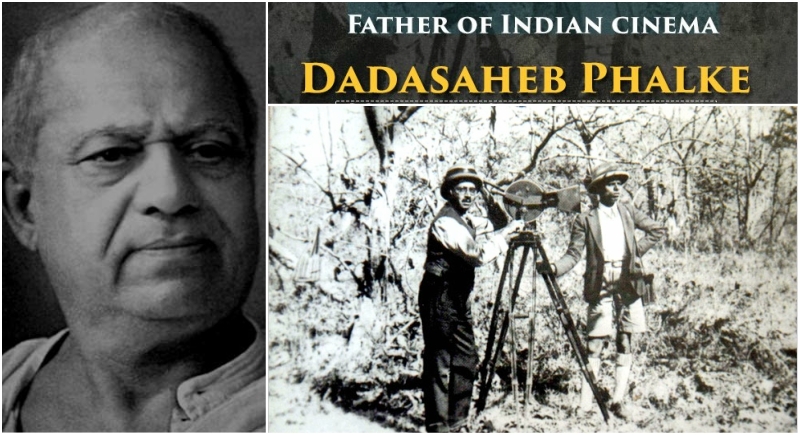Nation recalls Dadasaheb Phalke who opened up ‘Golden Treasure of Cinema’ in Indian History
Mumbai, April 30: Only a few prominent names have carved history in the world of ‘Indian Cinema’, one of the names amongst them is Dadasaheb Phalke. Recalling the legendary player of ‘Film Industry’, Nation recalled ‘Father of Indian Cinema’ today with an honour. Dadasaheb Phalke was the name written in ‘Bold Golden Letters in the world of Indian Films’.

The man who gave ‘India’s first feature film’-Raja Harishchandra further laying down a golden path: for today what we call it as ‘Bollywood’.Also, Google has paid tributes to Dadasaheb Phalke with Google Doodle.

Popularly known as the ‘Father of Indian Cinema’, Dadasaheb Phalke was one of the most eminent directors and screenwriters in the history of Indian film industry. He was born on 30 April 1870 and breathed his last on 16 February 1944 at the age of 74 years. Dhundiraj Govind Phalke was born in a Marathi family. In 1885, Dhundiraj Govind Phalke sought admission to Sir J. J. School of Arts and passed from the same in 1890. Later he joined the Kala Bhavan in Baroda, where he gained knowledge of various subjects like engineering, photography, sculpture, painting and drawing.
Initially, Dhundiraj Govind Phalke as he was a photographer. Phalke then decided to try his hand at filmmaking. After watching The Life of Christ, a silent film, Phalke decided to make moving pictures. He made his first film Raja Harishchandra in 1912 and it was shown to the public at Coronation Cinema in Mumbai on 3 May 1913 for the first time. This was actually the commencement of the Indian film industry. All the departments for making Raja Harishchandra were handled by Indians and there were no foreigners included.
Hindustan Films is the first film company which was formed by Dhundiraj Govind Phalke along with some noted businessmen of Mumbai, who were partners in the same.
In his career of 19 years, he made 95 full-length movies and 26 short movies.
Some of his best films include Gangavataran (1937), Raja Harishchandra (1913), Shri Krishna Janma (1918), Savitri Satyavan (1914), Mohini Bhasmasur (1913), Kaliya Mardan (1919), Setu Bandhan (1932) and Lanka Dahan (1917). He breathed his last on 16 February 1944 in Nashik.
In 1969, the Government of India, in honour of the great director and screenwriter, started the Dadasaheb Phalke Award, which is given to a person in showbiz for lifetime contribution to cinema. This award is one of the most revered awards for the film fraternity in India. In 1971, a postage stamp depicting Phalke was also released by the Indian Post.





